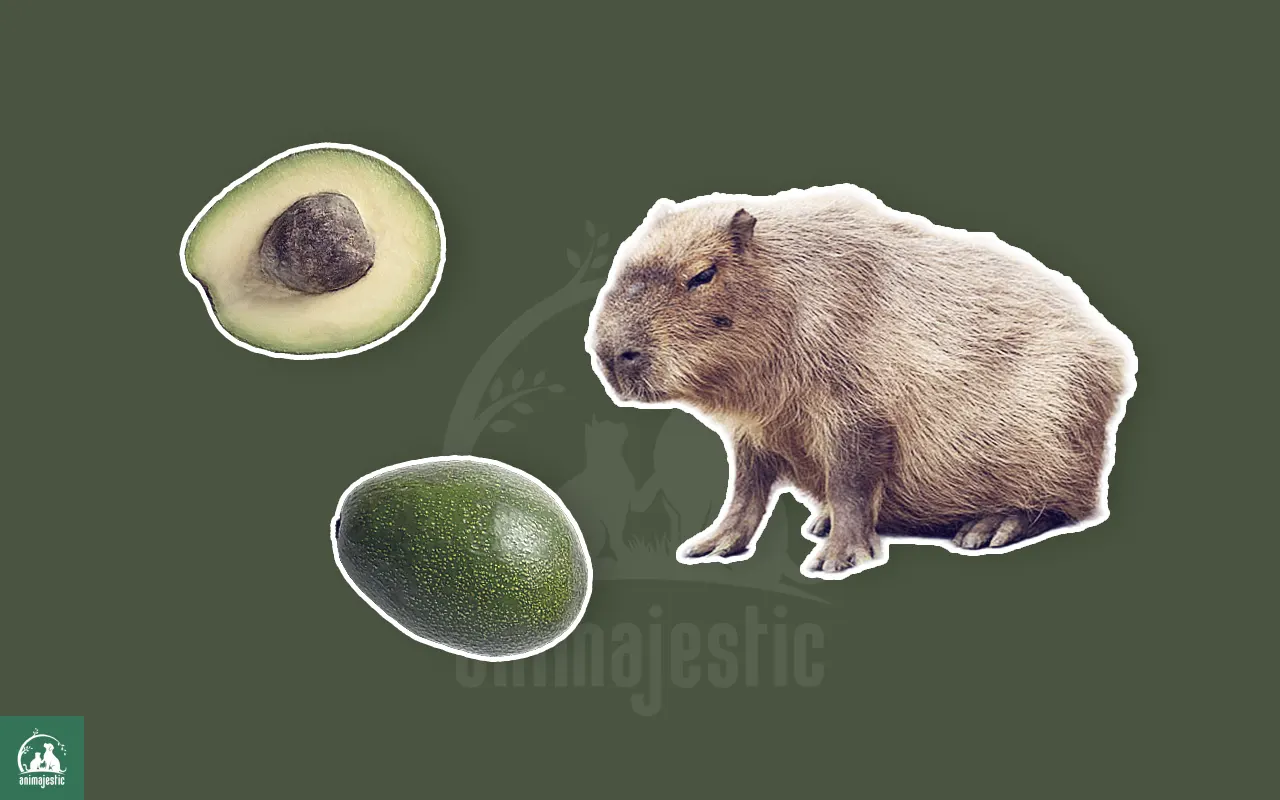Care to know if capybaras eat avocados or not? Well, as capybara owners, we are concerned about our pets’ well-being and always aim to give them the utmost care.
A critical aspect of care is keeping a capybara on a healthy and balanced diet and as pet owners, we’re often tempted to share what we consume with our pets, such as the nutritional gem, avocado.
But when it comes to capybaras, it begs the question, “Can capybaras eat avocados?”
The subject of capybaras and avocados is delicate, and I will be using this comprehensive article to help you get into the nutritional profile of avocados, discuss all you need to know and provide safer alternatives.
By the end of this enlightening discussion, you’ll be well informed to make the best decisions about what to include in your capybara’s diet.
Nutritional Profile of Avocados
Before examining the suitability of avocados in capybaras’ diet, let’s first take a closer look at the nutritional benefits of avocados. For humans, avocado is a nutrient-dense superfood, being a great source of:
- Unsaturated (healthy) fats
- Fiber
- Vitamins K, C, and E
- B-vitamins, including B6, B5, and folate
- Minerals such as potassium, magnesium, and manganese
The question then arises, do these nutrients offer similar benefits to capybaras as they do to humans?
Understanding Capybaras’ Dietary Needs
Capybaras, native to South America’s wetlands and marshy areas, are herbivores with a diet primarily consisting of grasses, aquatic plants, and other leafy vegetation.
They rely on substantial amounts of fiber to maintain their digestive system’s proper functioning, and they are natural grazers.
When in captivity or as domestic pets, capybaras’ diet should be designed to mimic their natural eating habits as closely as possible, which simply means providing them with a diet rich in fiber, with access to different types of hay, grasses, fruits, and vegetables.
Potential Benefits of Avocado for Capybaras
Since capybaras’ natural diets are rich in leafy vegetation, their need for vitamins and minerals is no doubt significant. So, are the nutrients found in avocados helpful for capybaras?
Let’s explore the potential positives:
- Rich in Fiber: Avocado’s high fiber content could help maintain capybaras’ healthy digestion, which typically relies on fiber-rich vegetation.
- Contains Valuable Vitamins: The vitamins K, C, and E present in avocados may contribute positively to a capybara’s overall health.
- Mineral Content: Avocado’s minerals, including potassium and magnesium, are essential for the proper functioning of all living organisms, including capybaras.
While avocados boast an impressive nutrient profile for humans, I want you to consider the possible risks before we jump to conclusions regarding their suitability for capybaras.
The Potential Risks of Avocado for Capybaras
There are a few potential concerns stemming from feeding avocados to capybaras, which might make them a less-than-ideal snack:
- High Fat Content: Although avocado fats are healthy unsaturated fats, they are still calorie dense. Capybaras’ natural diet is typically low in fat and providing them with foods higher in fat content might lead to unhealthy weight gain.
- Toxicity Concerns: Avocados contain a natural fungicidal toxin known as Persin. While Persin is harmless to humans, it can potentially be toxic to many animals, including capybaras. The highest concentration of Persin is found in the leaves, skin, and seeds of avocados.
- Choking Hazard: The large seed at the center of an avocado may present a choking hazard to capybaras.
Given these potential risks, a pet owner must carefully weigh the pros and cons before deciding to feed avocados to their capybaras.
So, Can Capybaras Eat Avocados?
After evaluating the potential benefits and risks for capybaras, we can conclude that it is NOT recommended to feed avocados to capybaras.
This means NO. There are too many uncertainties regarding the toxin levels and potential health hazards of feeding avocados to capybaras.
If you have accidentally fed avocado to your capybara, observe them closely afterward, and consult a veterinarian if you notice any adverse signs, such as vomiting, diarrhea, or irregular behavior.
Safer and Nutritious Alternatives to Avocado for Capybaras
The good news is there are many healthy and nutritious alternatives to avocado that are better suited for your capybara’s diet:
- Hay and Grasses: Make sure your capybara has access to ample amounts of hay and grasses, as they are perfect sources of fiber and essential nutrients that fit their herbivore nature.
- Vegetables: Dark, leafy vegetables like kale, spinach, and Swiss chard can be added to your capybara’s diet to provide healthy vitamins and minerals.
- Fruits: Offering fruits, such as apples, pears, and melons, in moderation can provide a sweet treat while enhancing nutritional variety.
- Vitamin and Mineral Supplements: To ensure the optimal health of your pet, consult with your veterinarian about the possibility of incorporating vitamin and mineral supplements into their diet.
By focusing on these alternatives, you can provide a healthy, balanced diet for your capybara without using avocados.
Conclusion
Avocados are not the best food option for your capybara. The nutritional benefits of avocados for humans do not necessarily translate into similar benefits for capybaras, and the potential risks must be considered.
A pet owner’s responsibility lies in being well-informed in making vital decisions about their capybaras’ diet.
Stick to safer, nutritionally balanced options designed specifically for capybaras, and ensure they remain healthy, happy, and well-cared for throughout their lives.
Here’s to responsible pet ownership and nourishing the remarkable bond between us and our beloved capybaras.
